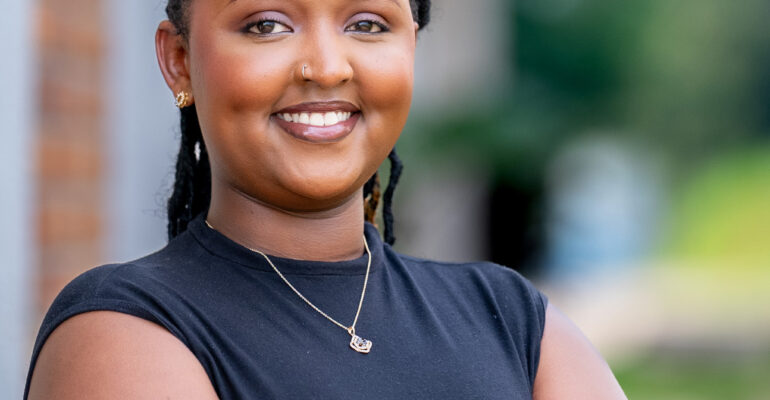Empowering Gender Equity Activism Through MGHD: An Inspiration Journey of Mahoro Hallelujah
August 1, 2024 2024-11-07 7:39Empowering Gender Equity Activism Through MGHD: An Inspiration Journey of Mahoro Hallelujah
Growing up, Mahoro always saw a significant divide between men and women, with many attributing women’s strengths as weaknesses. It wasn’t until she attended Fawe Girls School that she experienced a profound shift in her perspective. Surrounded by other women, Mahoro saw success, strength, and intellectual prowess among her peers. “We were the queens,” she recalls, “the big picture.” This environment influenced her belief in the power of being a woman and paved a way for her gender equality passion.
Mahoro’s journey into activism began with her role in a certain Rwanda Young Women network, where she coordinated projects and advocacy efforts across the region, including Kenya and Uganda. Collaborating with women parliamentarians and building capacity for adolescent girls, she managed a diverse network supporting, women with disabilities, mothers, and those with chronic diseases. This role redefined her goals as a gender activist, deepening her understanding of the inequalities women face in various sectors, including health, politics, and research.
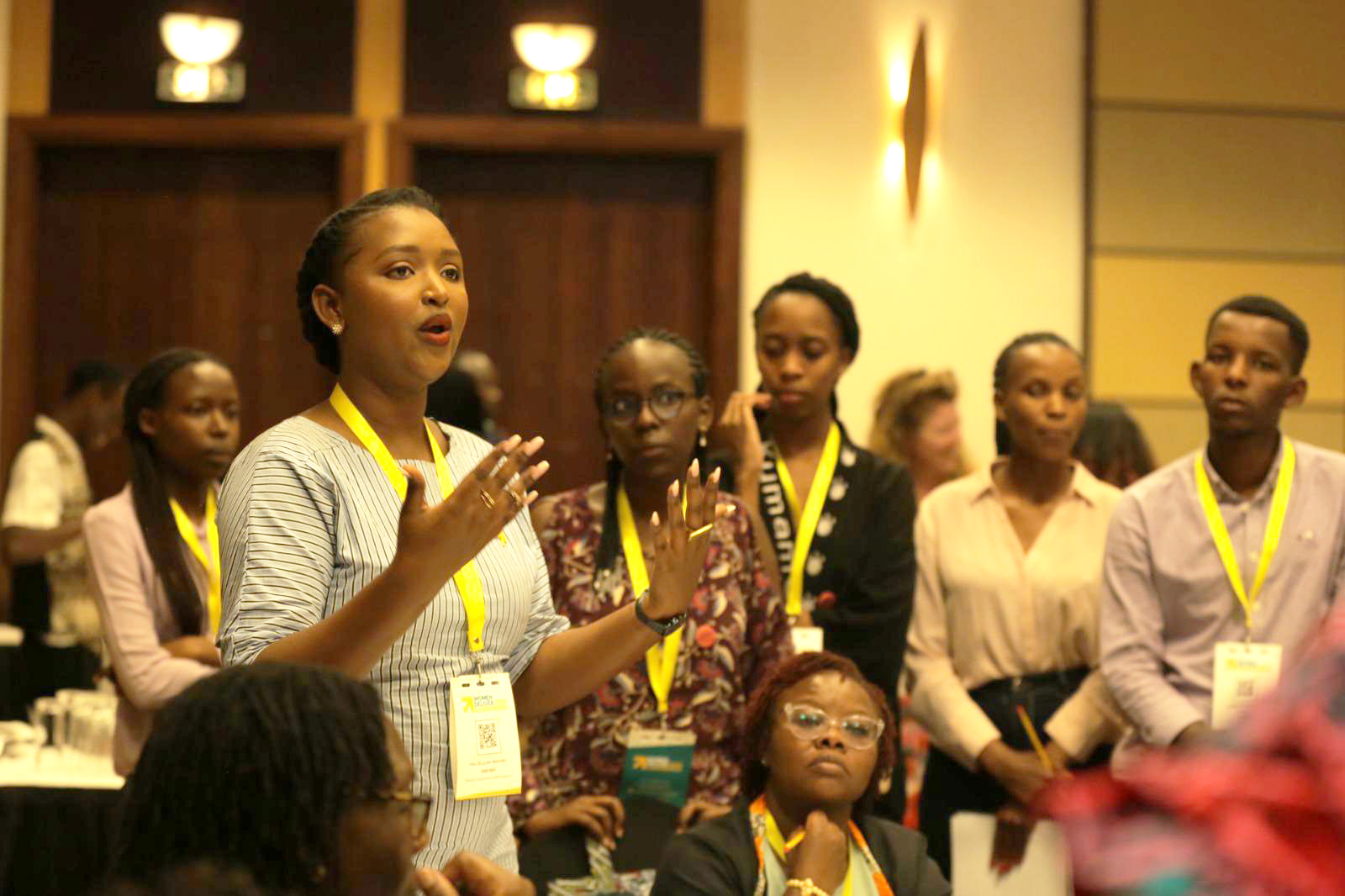
Motivated by her experiences and short falls, Mahoro decided to join the Master of Science in Global Health Delivery (MGHD) at the University of Global Health Equity (UGHE), focusing on Gender, Sexual and Reproductive Health (GSRH). She wanted to address gender inequities more effectively, particularly those affecting adolescent girls in Rwanda who struggle with teenage pregnancies and school dropouts.
“I believed the program would offer me the knowledge and skills to design and develop initiatives targeting these issues from their roots.” Mahoro says. “My choice to pursue the MGHD program is rooted in this transformative experience and my commitment to creating sustainable, equitable healthcare solutions for underserved communities around the world.”
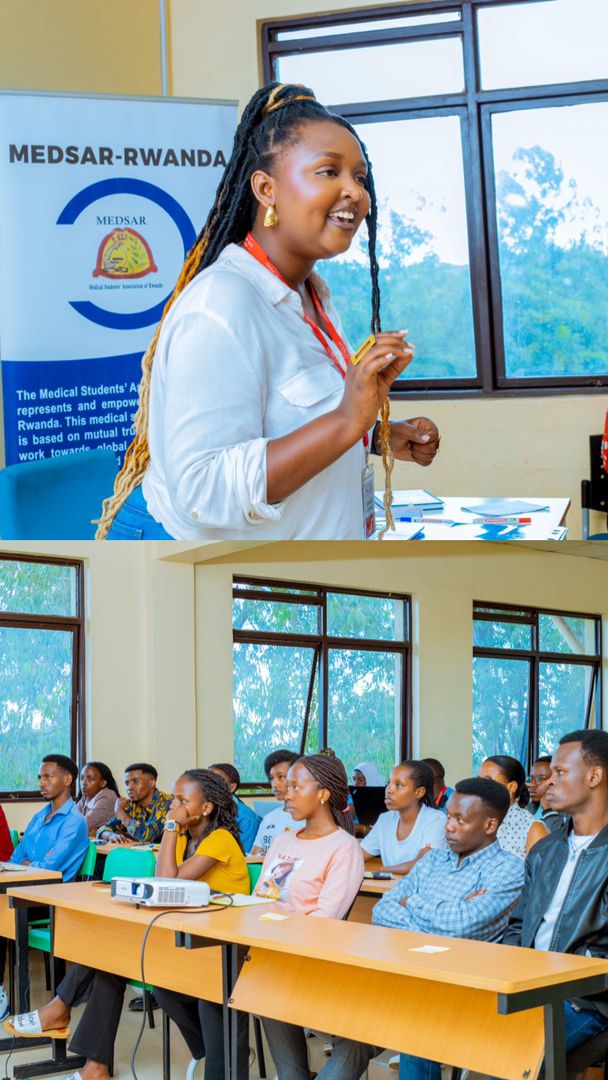
Mahoro believes that the program has increased her skills and capacity as a health practitioner and as a gender activist as well. Through empowering her advocacy skills, political understanding, she feels more confident navigating through conventional policies and encourage changes, raise awareness and design and implement effective initiatives that address gender-based disparities.
“Through the GSRH program, I learned how deeply entrenched gender norms can limit access to resources and opportunities. This knowledge has inspired me to create and lead initiatives that not only raise awareness but also provide practical solutions to dismantle these barriers.” Mahoro Halellujah says.
Her favorite modules in the program include human rights, gender and social justice theories, and social determinants of health. The evolution of human rights fascinated her, especially the shift from controlling women’s bodies to empowering them. She appreciated the contributions of feminists throughout the exclusion history and felt a bit inspired to further her studies in human rights. Learning about social determinants of health opened her eyes to factors she had never considered before, broadening her approach to gender activism.
Mahoro claims that the diversity within her cohort at UGHE has enriched her learning experience. She values the deep connections and the understanding of different cultural contexts that shape gender issues. Respecting diverse opinions and combining them to achieve significant results has been a key takeaway. This diverse environment has prepared her to develop programs that cater to various cultural contexts and needs.
Through the program, she discovered her resilience. Despite the hectic schedule, she found strength in herself and appreciated the power of cooperation. Group work and class presentations have taught her the importance of collective effort in building something big and better.
For her practicum, Mahoro and her team are working to identify barriers and facilitators for utilizing sexual and reproductive health services among adolescents in Gatsibo, a district in Eastern Rwanda. She believes that protecting adolescents is crucial for preventing poor health outcomes and ensuring they grow into productive adults. Addressing issues like high teen pregnancy rates, HIV infections, school dropouts, and unsafe abortions among young people is at the core of their work.
For the future, Mahoro hopes to contribute to health equity as a global health leader. She is open to working with international organizations, governmental agencies, and non-governmental organizations to design better programs that prioritize vulnerable communities. Her experiences at UGHE and her passion for gender equality have equipped her to bring significant improvements to health outcomes worldwide.
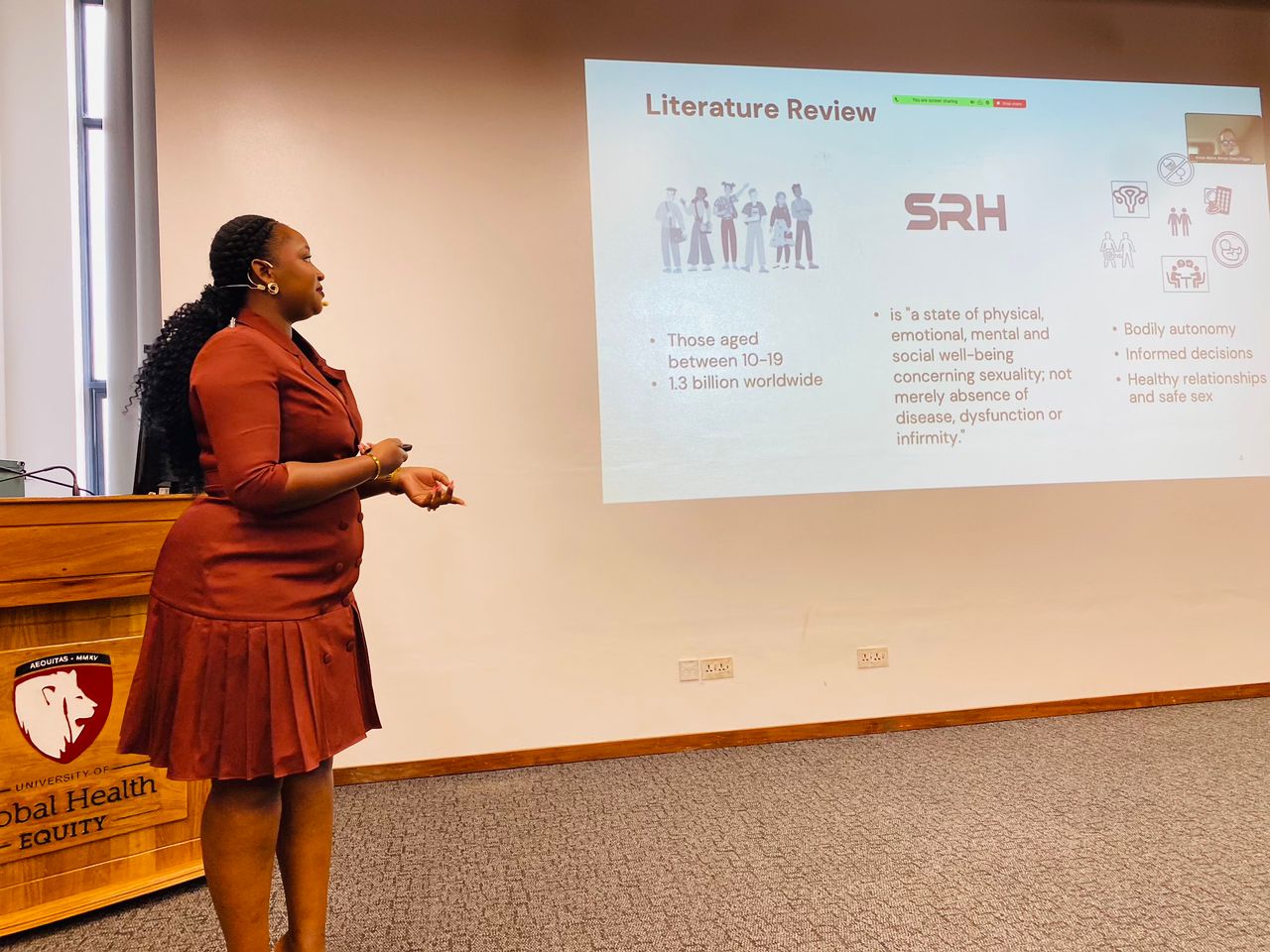
Sharing her sentiment about the graduation, Mahoro described the feeling as bittersweet. She looks forward to celebrating the accomplishments and the friendship forged all the way long, but so sad that that amazing journey is on its epilogue. All in all, the positive attitude stays sharp as she is eager to use her acquired knowledge in the community.
“As I prepare to graduate, I feel an overwhelming sense of excitement for what lies ahead. I am eager to apply everything I have learned and to continue advocating for health equity and Gender equality in the communities I serve”
Her journey from a young girl noticing gender divides to a determined gender activist and global health leader is a testament to the power of education, resilience, and the belief in women’s strengths. Mahoro Hallelujah stands ready to make a lasting impact, advocating for a world where women and girls can thrive equally and freely.
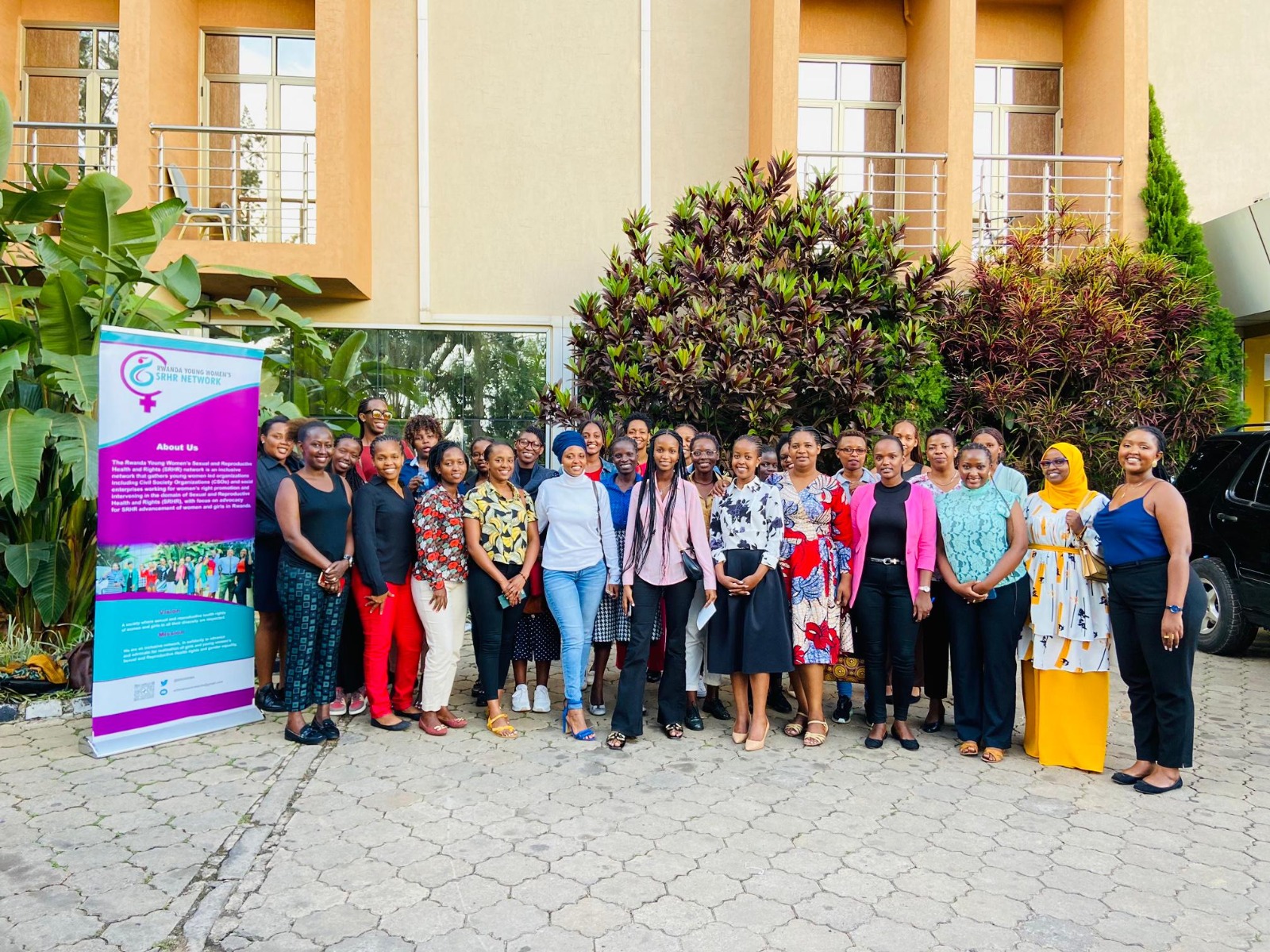
A massage to the world
“Health equity is a fundamental right. At UGHE, I learned how social factors like socioeconomic status, geography, and gender shape health outcomes. To achieve health equity, we must remove barriers to healthcare for marginalized communities through education, community engagement, and inclusive policies.
Empowering individuals with knowledge about their health rights can help communities take control of their health. Working with local leaders ensures health initiatives are culturally relevant. We must advocate for equitable and accessible healthcare for all, especially the underserved.
Together, we can create solutions that ensure everyone has optimal health. Let’s build a healthier, more equitable world.”

